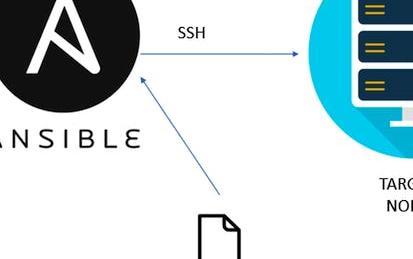

Our Courses

Management of Urban Infrastructures – part 1
Sustainability, Resilience and Efficiency are fundamental considerations for city managers in managing urban infrastructures. Today, more than 3.9 billion people, making up more than 54% of the global population, live in cities. Urbanization is expected to continue in the coming years, raising the urban population to 6.0 billion by 2045. This dramatic increase in urban populations will inevitably increase the demand for energy, mobility (transportation), water, and other urban services in every city around the world.
-
Course by

-
 Self Paced
Self Paced
-
 English
English

Application Development using Microservices and Serverless
Welcome to this introductory course on microservices and serverless, essential technologies for cloud native and application modernization workloads. Rather than building large applications, known as monoliths, that perform all the functionality, microservices break down larger applications into smaller pieces that are independently maintainable and scalable, providing a host of benefits. This architecture is now used in the largest software organizations in the world, because it provides cost benefits, team autonomy, and other advantages.
-
Course by

-
 Self Paced
Self Paced
-
 24 hours
24 hours
-
 English
English

Cloud Computing Foundations
Welcome to the first course in the Building Cloud Computing Solutions at Scale Specialization! In this course, you will learn how to build foundational Cloud computing infrastructure, including websites involving serverless technology and virtual machines. You will also learn how to apply Agile software development techniques to projects which will be useful in building portfolio projects and global-scale Cloud infrastructures. This course is ideal for beginners as well as intermediate students interested in applying Cloud computing to data science, machine learning and data engineering.
-
Course by

-
 Self Paced
Self Paced
-
 19 hours
19 hours
-
 English
English

Exam Prep AZ-120: Azure for SAP Workloads Specialty
The AZ-120: Administering Microsoft Azure for SAP Workloads course is designed for IT professionals who are responsible for managing and deploying SAP solutions on the Azure platform. In this course, you will learn how to deploy, manage, and monitor SAP applications on Azure infrastructure. You will gain an in-depth understanding of the Azure platform and its capabilities for hosting SAP workloads. The course will cover topics such as Azure Virtual Machines, Azure Storage, Azure Networking, and Azure Active Directory.
-
Course by

-
 Self Paced
Self Paced
-
 11 hours
11 hours
-
 English
English

Introduction to AWS Identity and Access Management
Security should be your first priority when developing cloud native applications.
The goal of this course is to provide you with foundational knowledge and skills that will enable you to grow in your use of both AWS IAM and the rest of the AWS ecosystem. Throughout the course, the focus will be on the base-level knowledge needed for understanding the functionality of IAM, and simple ways to implement its usage.
-
Course by

-
 Self Paced
Self Paced
-
 9 hours
9 hours
-
 English
English

Understanding the Enterprise Systems Environment
Understanding the Enterprise Systems Environment is the second course in the SAP Technology Consultant Professional Certificate program. The course builds your understanding of the digital landscape. You’ll explore business processes and organizational alignment. You’ll get an overview of how systems are designed and developed, and consider architecture, infrastructure, application development, data science, cloud, privacy, and security.
-
Course by

-
 Self Paced
Self Paced
-
 12 hours
12 hours
-
 English
English

Business Case for Cloud Workloads
Learn what a workloads placement strategy is, why it is important, and how to demonstrate to customers the tangible value that Intel® technical optimizations offer as part of the workload placement process.
●\tCloud Customer Business Drivers and Requirements: This lesson identifies what business and ecosystem drivers lead a business to adopt a cloud infrastructure and what requirements that should incorporate into their cloud business decisions. (Duration: 30 minutes)
-
Course by

-
 Self Paced
Self Paced
-
 3 hours
3 hours
-
 English
English

Cloud Operations on AWS
In this course, learn how to leverage AWS services to operate at cloud scale with governance and agility at the core. AWS Cloud Operations provides a model and tools for a secure and efficient way to operate in the cloud. You can transform your organization, modernize and migrate your applications, and accelerate innovation with AWS.
-
Course by

-
 Self Paced
Self Paced
-
 9 hours
9 hours
-
 English
English

Set Up and Configure a Cloud Environment in Google Cloud - AWS: Challenge Lab
This is a self-paced lab that takes place in the Google Cloud console. This challenge lab tests your skills and knowledge from the labs in the Build Google Cloud Infrastructure for AWS Professionals quest. You should be familiar with the content of the labs before attempting this lab.
-
Course by

-
 Self Paced
Self Paced
-
 1 hour
1 hour
-
 English
English

Palo Alto Networks Cybersecurity Foundation
Palo Alto Networks Cybersecurity Foundation Course Description: In this course, students will learn fundamental principles associated with the current cybersecurity landscape and identify concepts required to recognize and potentially mitigate attacks against enterprise networks as well as mission critical infrastructure. Students will also learn how to initially setup and configure security zones, authentication, and policies on a next generation firewall. Learning Objectives: Upon completion of this course, students will be able to: Upon completion of this course students will be able t
-
Course by

-
 Self Paced
Self Paced
-
 11 hours
11 hours
-
 English
English

Getting Started with Splunk Cloud GDI on Google Cloud
This is a self-paced lab that takes place in the Google Cloud console. A step-by-step guide through the process to configure multiple methods to ingest Google Cloud data into Splunk. In this hands-on lab you'll learn how to configure Google Cloud to send logging and other infrastructure data to Splunk Cloud via Dataflow, the Splunk Add-on for Google Cloud Platform, and Splunk Connect for Kubernetes (SC4K).
-
Course by

-
 Self Paced
Self Paced
-
 2 hours
2 hours
-
 English
English

Urbanisation and Health - Promoting Sustainable Solutions
More than half of world’s population lives in cities while only 5% did so in the 18th century. The rapid urbanisation has resulted in for example inadequate infrastructure, physical inactivity, gentrification, air pollution, and growing numbers of slum dwellers. All factors challenging health and wellbeing of the people living in the cities. In addition, when addressing climate change it has become of paramount importance to look at mitigation and adaptation investments tailored to the urban context.
-
Course by

-
 Self Paced
Self Paced
-
 27 hours
27 hours
-
 English
English

Working with BigQuery
In this guided project, you will learn about working with Google's BigQuery which is allows easily work with and query massive datasets without worrying about time wasting or having the right infrastructure to analyze that data quickly. You will learn how to use big query to collect your data, query it with SQL and even do quick visualizations on it.
-
Course by

-
 Self Paced
Self Paced
-
 2 hours
2 hours
-
 English
English

Build a film club web app on Google AppEngine
In this 3-hour long project-based course, you will learn how to develop a basic web app on Google AppEngine and deploy it online on Google's infrastructure by creating and setting up your environment, managing user authentication with Firebase, creating and managing database entities with Firestore in Datastore mode.
-
Course by

-
 Self Paced
Self Paced
-
 3 hours
3 hours
-
 English
English

Industrial Internet of Things (IIoT)
In this course, learners will be introduced to the concept of the Industrial Internet of Things, or IIoT, learn how it is applied in manufacturing, and what businesses should consider as they decide to implement this technology.
-
Course by

-
 Self Paced
Self Paced
-
 11 hours
11 hours
-
 English
English

DevOps on AWS: Operate and Monitor
The third and the final course in the DevOps series will teach how to use AWS Services to control the architecture in order to reach a better operational state. Monitoring and Operation are key aspects for both the release pipeline and production environments, because they provide instruments that help discover what's happening, as well as do modifications and enhancements on infrastructure that is currently running. This course teaches how to use Amazon CloudWatch for monitoring, as well as Amazon EventBridge and AWS Config for continuous compliance.
-
Course by

-
 Self Paced
Self Paced
-
 4 hours
4 hours
-
 English
English

Open Source Software Development Methods
In this course, we will define what open source software is, we will go over the history of open source software and what benefits it has provided to the world’s technology infrastructure over the decades. The course aims to teach you how to work in open source projects productively and gain a lot of benefits from it, and really understand what the advantages are. You will learn about collaboration best practices, and how to encourage diversity in open source projects.
-
Course by

-
 Self Paced
Self Paced
-
 5 hours
5 hours
-
 English
English

Ansible Basics & Installing WordPress on LAMP with Playbooks
This guided-project introduces you to Ansible automation and configuration management, provisioning, deploying, and managing compute infrastructure with Ansible.
-
Course by

-
 Self Paced
Self Paced
-
 2 hours
2 hours
-
 English
English

Getting Started with Chef Cookbooks
Chef is a powerful automation platform that transforms infrastructure into code. Chef automates how infrastructure is configured, deployed, and managed across your network without worrying about its size. Cookbooks are fundamental working units of Chef, which consists of all the details related to working units, having the capability to modify configuration and the state of any system configured as a node on Chef infrastructure. Cookbooks help in configuring the infrastructure with the help of other components like recipes, templates, files etc.
-
Course by

-
 Self Paced
Self Paced
-
 7 hours
7 hours
-
 English
English

New paradigms in wastewater management
The water cycle is strictly related to the fair and sustainable development of any society. Appropriate technologies and practices are needed for providing clean water and adequate sanitation to citizens worldwide, while facing environmental and societal challenges, such as climate change and increasing urbanization.
-
Course by

-
 Self Paced
Self Paced
-
 4 hours
4 hours
-
 English
English

Essential Google Cloud Infrastructure: Core Services - 繁體中文
這堂隨選密集課程會向參加人員說明 Google Cloud 提供的全方位彈性基礎架構和平台服務,並將重點放在 Compute Engine。這堂課程結合了視訊講座、示範和實作研究室,可讓參加人員探索及部署解決方案元素,例如網路、系統和應用程式服務等基礎架構元件。另外,這堂課也會介紹如何部署實用的解決方案,包括客戶提供的加密金鑰、安全性和存取權管理機制、配額與帳單,以及資源監控功能。
-
Course by

-
 Self Paced
Self Paced
-
 English
English

Materials Data Sciences and Informatics
This course aims to provide a succinct overview of the emerging discipline of Materials Informatics at the intersection of materials science, computational science, and information science. Attention is drawn to specific opportunities afforded by this new field in accelerating materials development and deployment efforts. A particular emphasis is placed on materials exhibiting hierarchical internal structures spanning multiple length/structure scales and the impediments involved in establishing invertible process-structure-property (PSP) linkages for these materials.
-
Course by

-
 Self Paced
Self Paced
-
 9 hours
9 hours
-
 English
English

Electric Vehicles and Mobility
The purpose of Electric Vehicles and Mobility is to help you, whatever your profile, your training or your country, find your own answers to questions such as: - Will electric vehicles be the last to be allowed in megalopolises in the 21st century? - Does the environmental gain from vehicle electrification justify heavy investment in charging infrastructure? - Are electric vehicles only for wealthy people in developed countries? This course will allow you to acquire elements from engineering science, sociology, environmental science, political science, economics, management science, in order
-
Course by

-
 Self Paced
Self Paced
-
 20 hours
20 hours
-
 English
English

Financing and Investing in Infrastructure
Learn how debt and equity can be used to finance infrastructure investments and how investors approach infrastructure investments! According to the OECD, the global infrastructure investment requirement by 2030 for transport, electricity generation, transmission & distribution, and water & telecommunications totals to 71 trillion dollars. This figure represents about 3.5% of the annual World GDP from 2007 to 2030. The European Commission estimated, that by 2020, Europe will need between 1.5 - 2 trillion Euros in infrastructure investments.
-
Course by

-
 Self Paced
Self Paced
-
 11 hours
11 hours
-
 English
English

Planning for Climate Change in African Cities
Climate change poses a threat to economic growth and long-term prosperity of many countries around the world. Africa is not an exception, considering the actual and potential impacts of climate change and climate variability that will threaten its vulnerable sectors and human populations. African countries are projected to experience changing rainfall patterns, rising sea levels, and higher temperatures that will affect food security, agricultural production, water availability, and public health, among others.
-
Course by

-
 Self Paced
Self Paced
-
 22 hours
22 hours
-
 English
English



